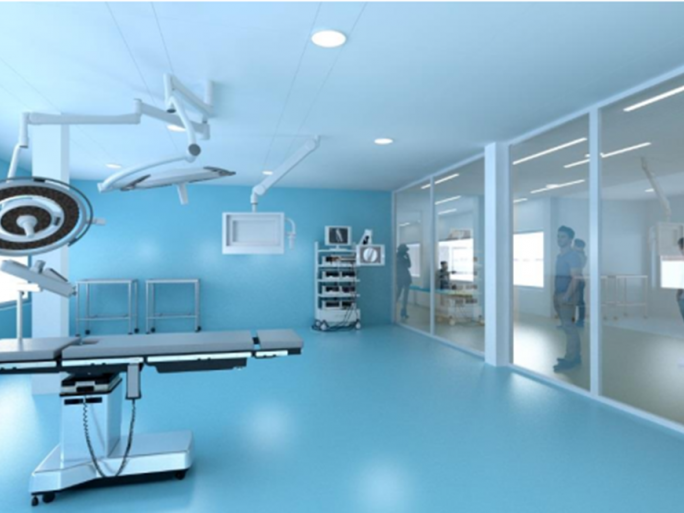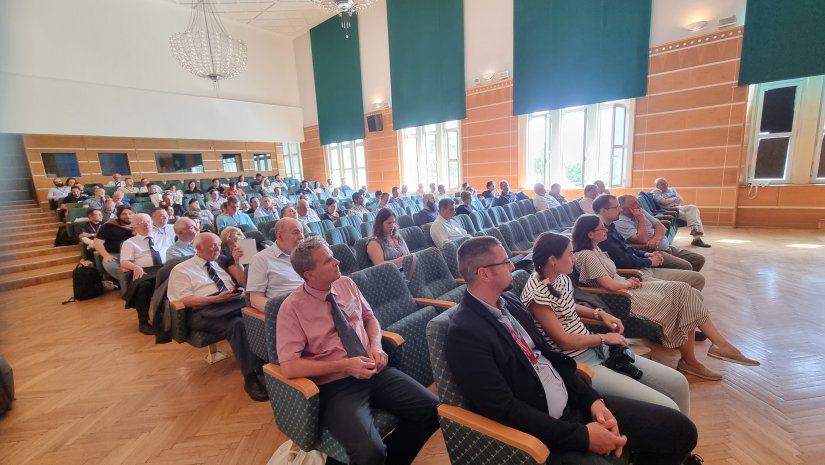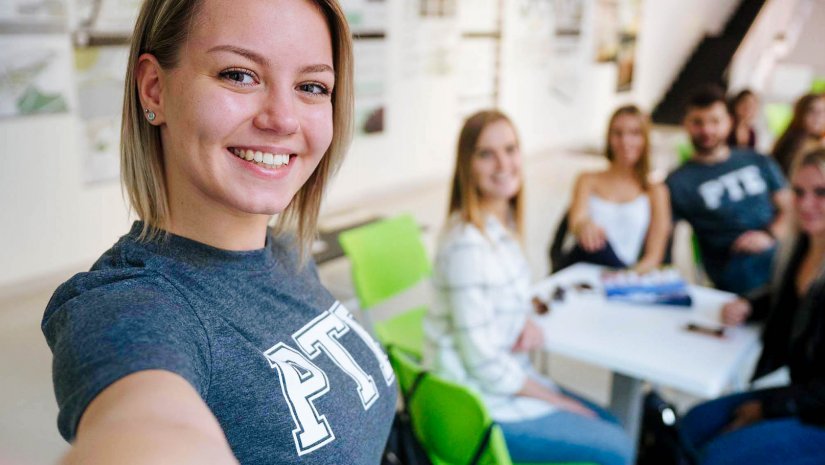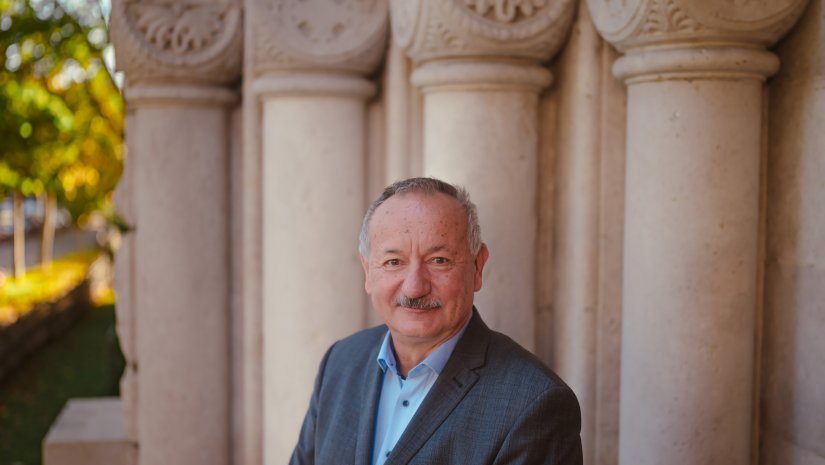
The MediSkillsLab Medical Simulation Education Centre of the Medical School of the University of Pécs has been operating on the fourth floor of the old main building on 280 square metres since 2015. As a result of the development that has just started, the usable surface area of the centre will be increased sixfold to 1,700 square metres. The total gross value of the investment exceeds HUF 1 billion, and the project is being implemented within the framework of the Human Resources Development Operational Programme "Infrastructural Development of the University of Pécs".
"Very important investments have been made. Thanks to this support, the University has been given a development opportunity to renew itself and to continue its scientific, teaching and research work in an even more modern environment", emphasised dr. Attila Felinger, vice rector for science and innovation, at the press conference on 10 November, which included the presentation of the new Simulation Education Centre construction site of the Medical School.
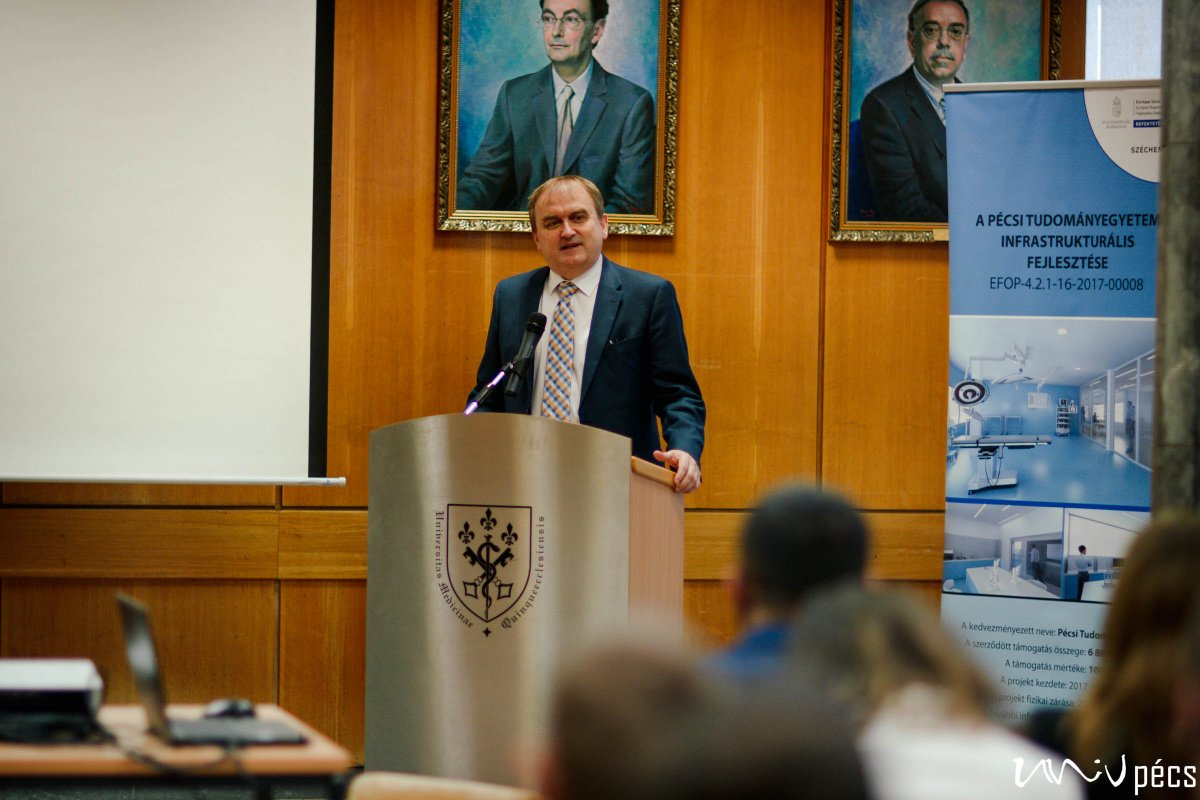
"The year 2021 was about change and development.
In addition to ongoing investments, we have also had the opportunity to generate new ones, laying the foundations for our future competitiveness. We have made significant progress in the development of education: the institute, currently operating on almost 300 square metres, will be expanded to 1,700 square metres," concluded chancellor István Decsi. As a result of the project development, the interdisciplinary MediSkillsLab Medical Simulation Education Centre of the Medical School of UP will not only be a unique institution in the region, but will also be able to provide European and world-class education in modern medical technology.
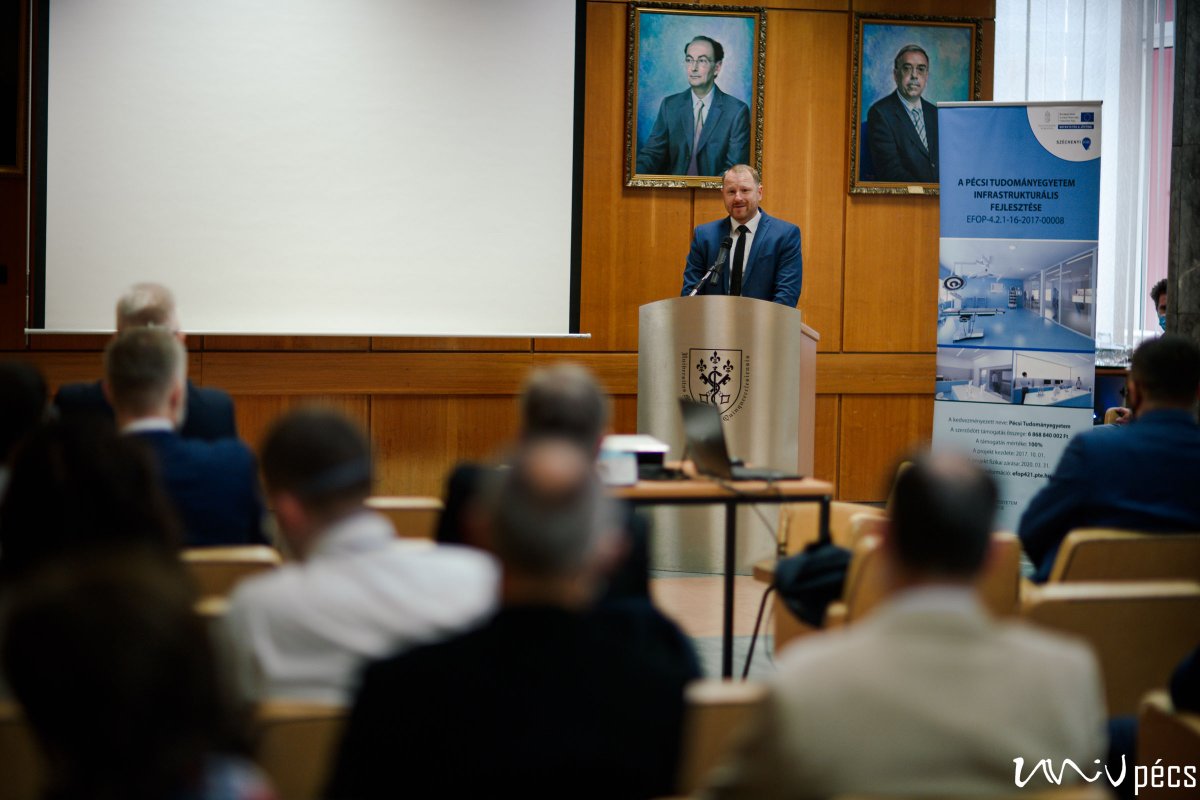
The primary task of the Simulation Centre is to develop the manual and communication skills of undergraduate and postgraduate medical students, doctors and health science trainees, thus providing full support to clinical education programmes.
The demand for the activities of the MediSkillsLab is increasing year by year, with currently nearly 1,500 contact hours per semester.
This is why it has become necessary to increase the space and modernise and renew the equipment park. The investment will significantly increase the number of classrooms and will involve a complete renovation of the relevant parts of the building.
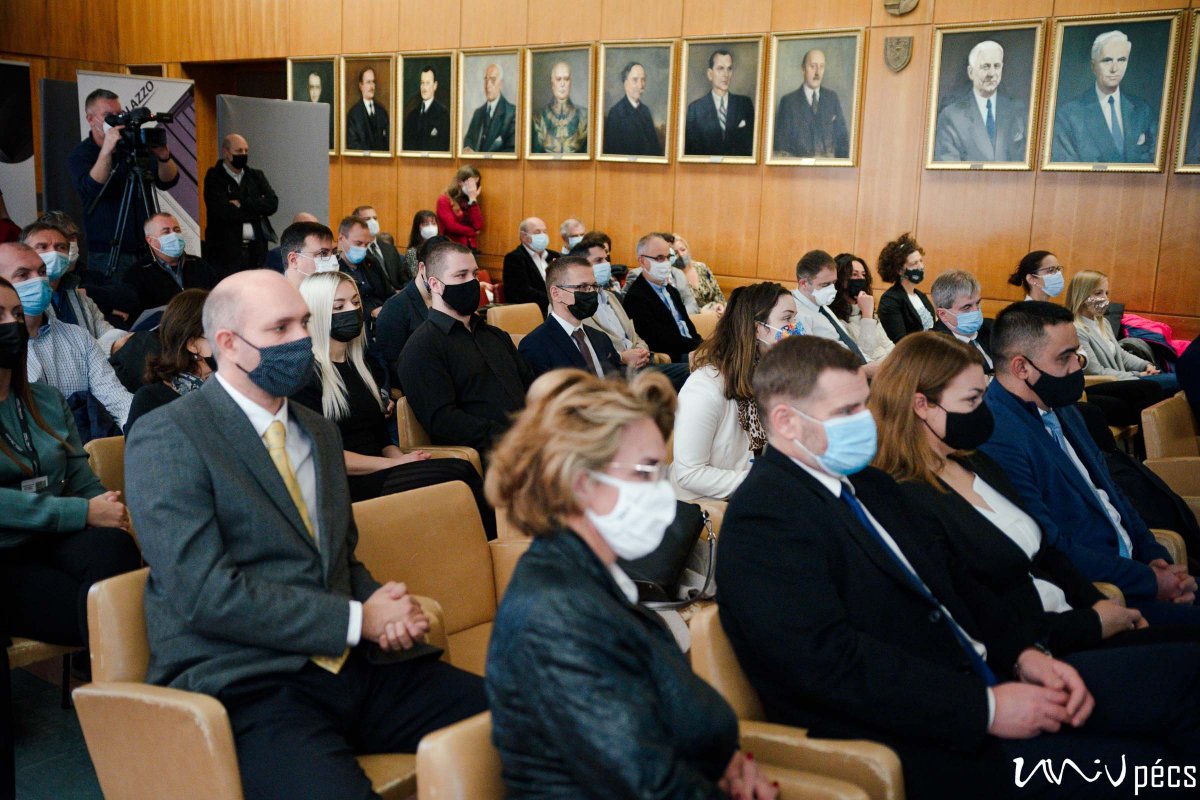
The centre will include a teaching theatre where surgeries can be performed using real medical equipment for educational or demonstration purposes. The operating theatre will also be able to support a wide range of medical-related research, development and innovation projects. The Simulation Education Centre will also house 25 dental phantom lab workstations to support dentistry training, and a new addition will be a teaching lab incorporating virtual and augmented reality (VR/AR) technologies, where the most advanced visualisation tools will be used to deliver health and medical education with the help of the UP 3D Printing and Visualisation Centre. The communication skills classrooms will be set up as a realistic doctor's office and ward, while the operational medicine concept unit will provide high-level training in prehospital care in an operational environment. In addition, the audio-visual system will be updated to support training, which will greatly facilitate not only the recording and playback of educational content, but also the development of digital curriculum from it.
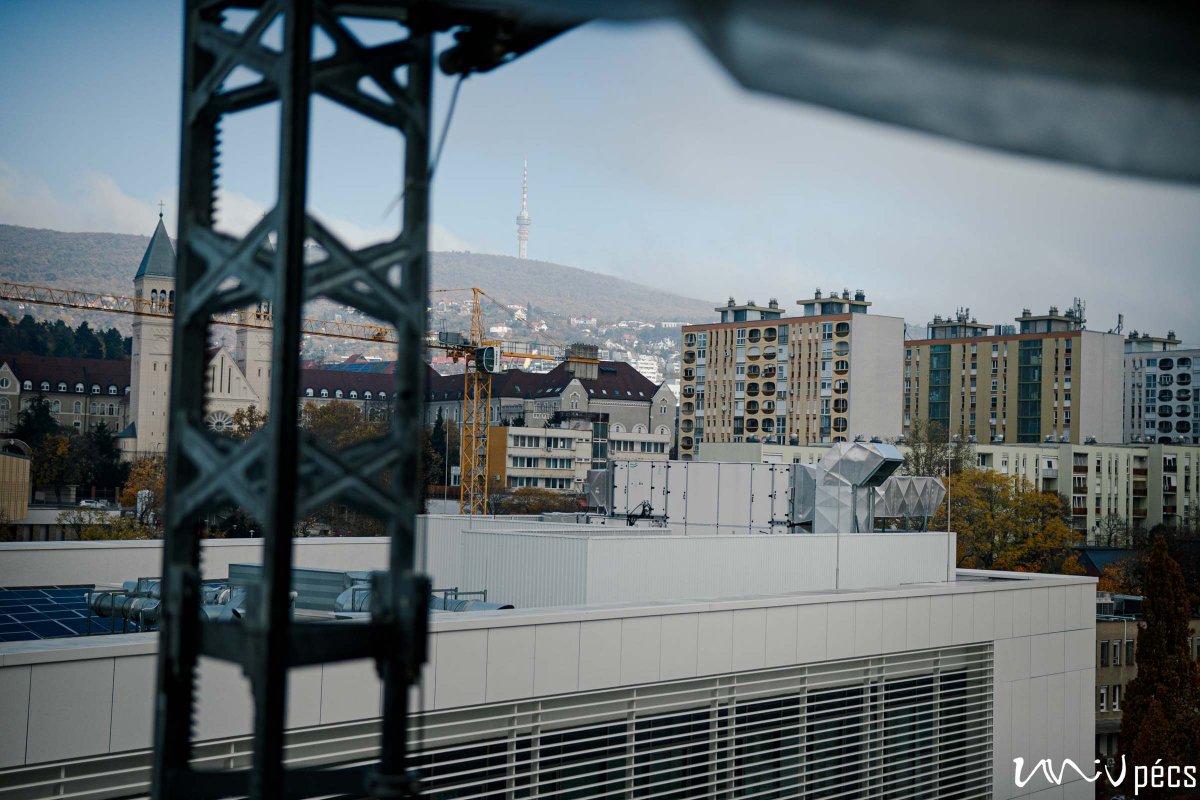
 Dr. Miklós Nyitrai, dean of the Medical School, emphasized that practical training is the basis of medical education, which is why this development is extremely important. In addition to increasing capacity through the acquisition of hundreds of new instruments, community spaces will be created to provide opportunities for community building. The works, which started on 4 October on the fourth floor of the main building, built between 1965 and 1970, will include architectural renovation, replacement of the facade windows, structural reinforcements, building services and mechanical installations, installation of air handling units, medical gas networks, fire protection systems, extension and renovation of the freight lift and enhancing accessibility.
Dr. Miklós Nyitrai, dean of the Medical School, emphasized that practical training is the basis of medical education, which is why this development is extremely important. In addition to increasing capacity through the acquisition of hundreds of new instruments, community spaces will be created to provide opportunities for community building. The works, which started on 4 October on the fourth floor of the main building, built between 1965 and 1970, will include architectural renovation, replacement of the facade windows, structural reinforcements, building services and mechanical installations, installation of air handling units, medical gas networks, fire protection systems, extension and renovation of the freight lift and enhancing accessibility.
"The equipment we use in the centre is truly world class. We are building a new teaching theatre, new matrix and communication classrooms to provide outstanding clinical education,"
said dr. Szilárd Rendeki, head of the Simulation Education Centre, outlining the main elements of the development. We also learned that a total of sixteen rural teaching hospitals and three rural medical universities have recently started to develop their skills laboratories as part of the National Skills Laboratory Network. The University of Pécs has six branch simulation centres in teaching hospitals, with aim to create a professional network.

The total gross value of the investment is HUF 1.128 billion and the construction is being carried out by VivaPalazzo. István Krisztics, the technical manager of the project on behalf of the University of Pécs, said that the simulation centre is being developed within the framework of the Human Resources Development Operational Programme -4.2.1-16-2017-00008 "Infrastructural Development of the University of Pécs". The development is expected to be ready for handover in July 2022. During the site visit after the press conference, participants were also able to see the construction site and learn about the efforts to minimise dust and noise pollution during the construction.
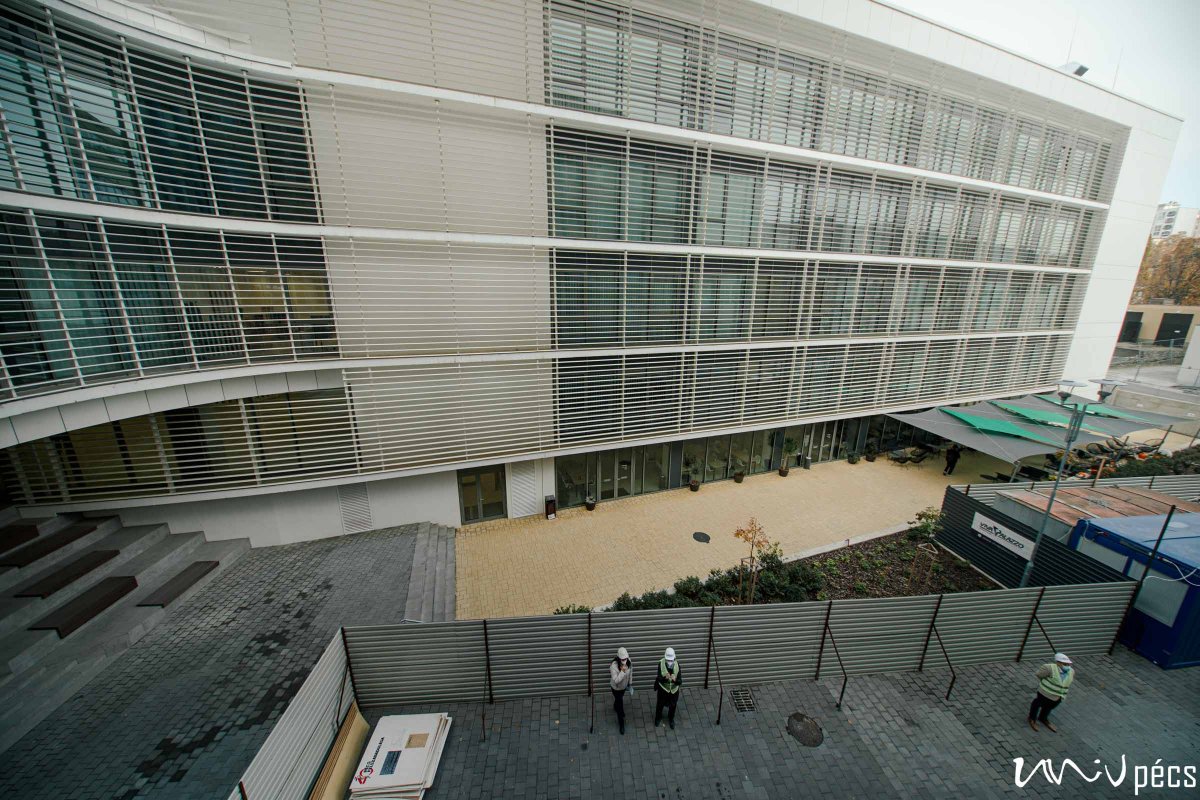
Written by: Gergely Kottász, Mariann Tóth
Photo: Szabolcs Csortos


